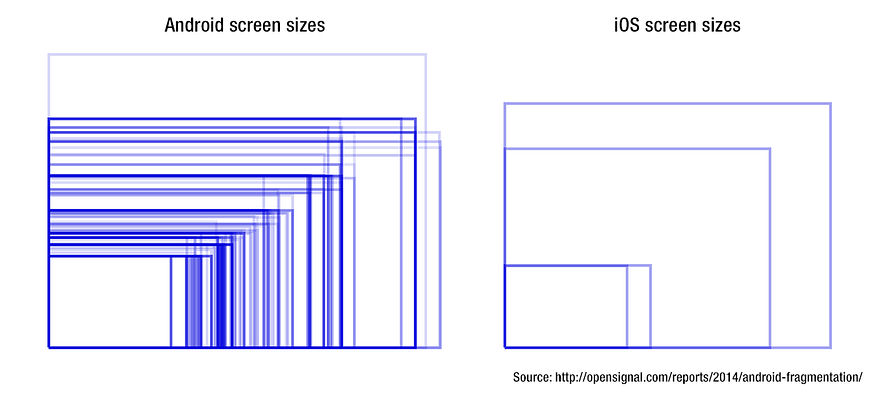The Magic of DevOps
DevOps encompasses a blend of cultural principles, philosophies, best practices, and tools aimed at accelerating an organization’s software development processes. By bridging the traditional gap between software development and IT operations, DevOps enables teams to develop applications seamlessly and with greater agility.
The DevOps practices include:
- Continuous Integration/Continuous Delivery (CI/CD): For streamlining and accelerating the software development life cycle (SDLC) (eg. Github Actions)
- Infrastructure as Code: provision and management using code and software development techniques (eg. Version control)
- Various Methodologies: the DevOps culture paved the way for newer and better software methodologies (Agile Development).
Challenges of Mobile Application Development
Mobile application development has indeed evolved significantly, leveraging advancements in smartphone hardware and mobile operating systems. In today’s ecosystem, developers have a plethora of options to choose from.
On the Android side, the traditional Java and Kotlin languages have been predominant, with recent innovations like Jetpack Compose revolutionizing UI development. Meanwhile, iOS developers typically work with Swift and Objective-C, taking advantage of Apple’s powerful development tools and frameworks.
Additionally, cross-platform development has gained traction with technologies like Flutter and React Native, allowing developers to build apps that run seamlessly on both Android and iOS platforms, saving time and resources in the process.
Despite the remarkable progress in mobile application development technologies, developers still grapple with various challenges inherent to the mobile landscape.
Fragmentation
The primary challenge confronting every mobile application developer is fragmentation, which manifests in two key forms: device fragmentation and OS fragmentation.

Android & iOS fragmentation (in terms of device screen sizes)
Device fragmentation necessitates developers to accommodate various hardware components, particularly screens, to ensure their product is accessible to a wide range of customers.
Android & iOS fragmentation (in terms of Operating System versions)
On the other hand, OS fragmentation requires developers to consistently validate that their app’s dependencies and features remain functional across different operating systems installed on smartphones.
App Testing
Another challenge developers must face is the testing phase. The testing phase is a major challenge for mobile app developers, intertwined with fragmentation concerns. It entails ensuring smooth app operation across diverse devices and OS versions. This dynamic landscape requires ongoing updates to testing strategies and tools.
Additionally, stringent app store standards necessitate rigorous testing to meet quality benchmarks. Automated testing tools and agile practices are crucial for streamlining this process and delivering high-quality apps that align with user expectations and app store guidelines.
These dual challenges have long plagued mobile development teams, resulting in a diminished user base, decreased agility in development processes, and complexities in testing and deploying app updates.
Say Hello to Mobile DevOps 👋
The DevOps approach to mobile development diverges significantly from its counterpart in web development, with key practices tailored to address unique challenges. These practices include:
- CI/CD for compatibility: Mobile DevOps includes techniques that allow developers to ensure compatibility through Continuous Integration (CI) and Continuous Delivery (CD), providing a solution for teams that mitigates the impact of device and OS fragmentation.
- Continuous Testing: App Testing remains a huge factor and a crucial stage in deploying your various app publishers like Apple’s app store and Google Play, as they tend to review your app before even shipping it to billions of users. The use of an automated testing process improves the process of handling frequent builds, bug identification, and dependency changes.
DevOps Redefining Mobile App Development
As DevOps gains increasing prominence in the tech industry and becomes a standard practice for startups and established companies alike, its adoption in web development has been widely acknowledged. However, the application of DevOps principles to mobile development brings renewed hope to mobile developers, promising solutions to the myriad challenges they encounter.
By embracing DevOps in the mobile sphere, developers can look forward to streamlining processes, enhanced collaboration, and ultimately, more efficient and successful mobile app development.
Sources:
- https://appinventiv.com/blog/devops-for-mobile-app-development/
- https://www.majestyk.com/blog/mobile-devops-getting-started-and-best-practices
- https://bitrise.io/solutions/use-cases/mobile-devops
- https://bitrise.io/blog/post/what-are-the-characteristics-of-a-devops-environment
- https://medium.com/@dmosyan/mobile-devops-challenges-dba621bec744
🔗 Read this in Medium: Revolutionizing Mobile App Development Through DevOps
Author: Jeo Carlo Lubao, Software Developer at Ingenuity Software | LinkedIn
Jeo Lubao is a passionate software developer at Ingenuity Software, skilled in technologies like Svelte, Mobile Development, and Firebase. He actively contributes to the tech community, volunteering at various tech communities in Davao City, while also working on personal side projects like creating VSCode color themes. Dedicated to continuous learning, Jeo regularly attends local tech meetups to explore new concepts and enhance his skills. Outside tech stuff, he enjoys playing video games, watching anime, and playing musical instruments